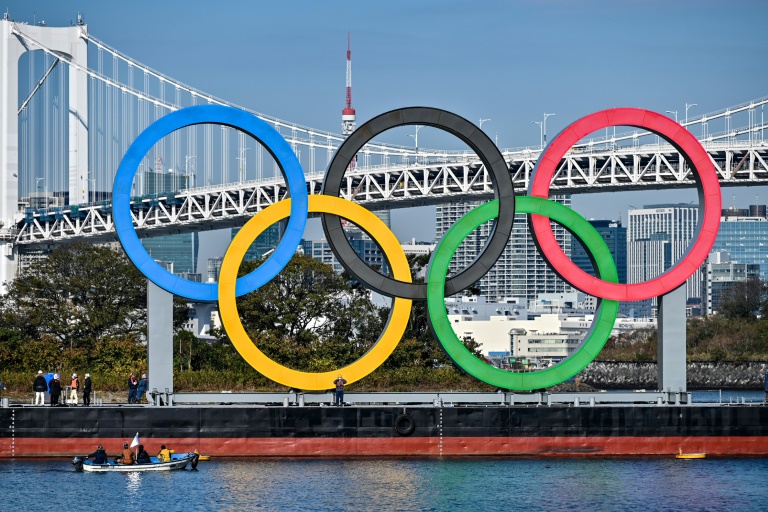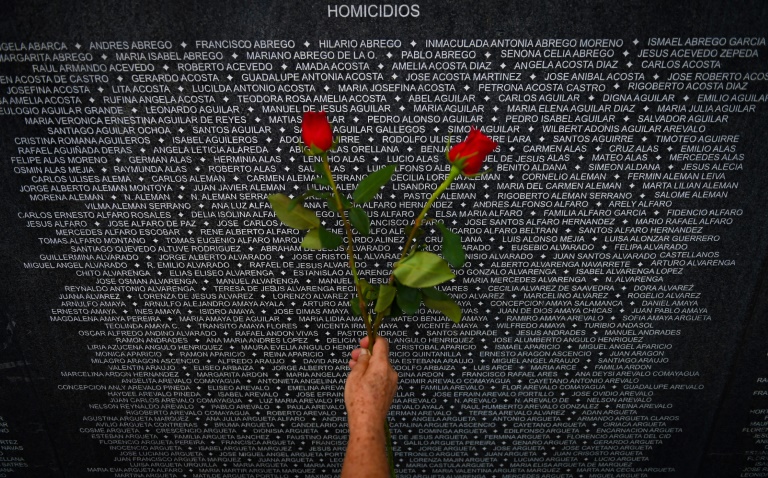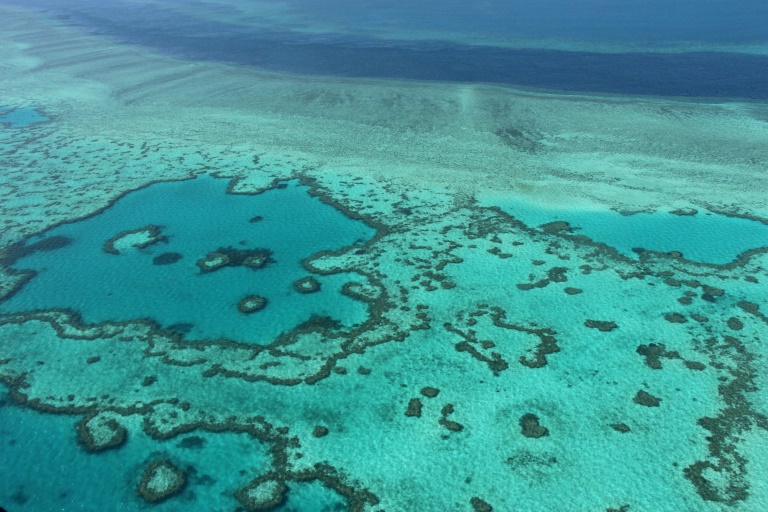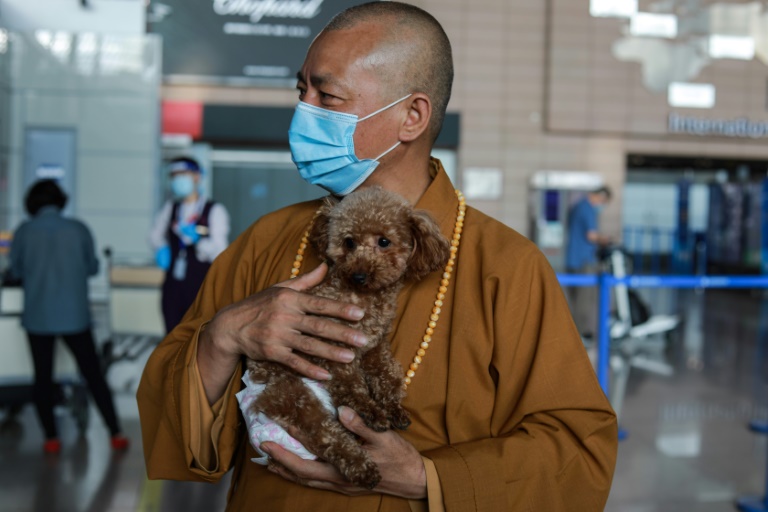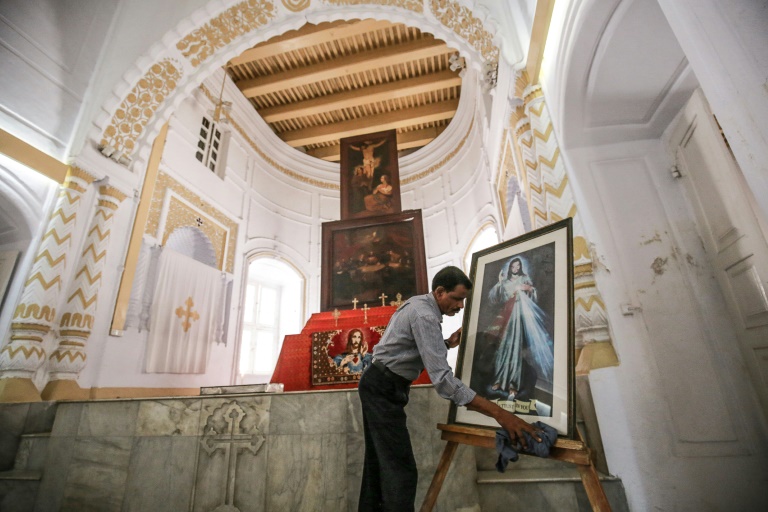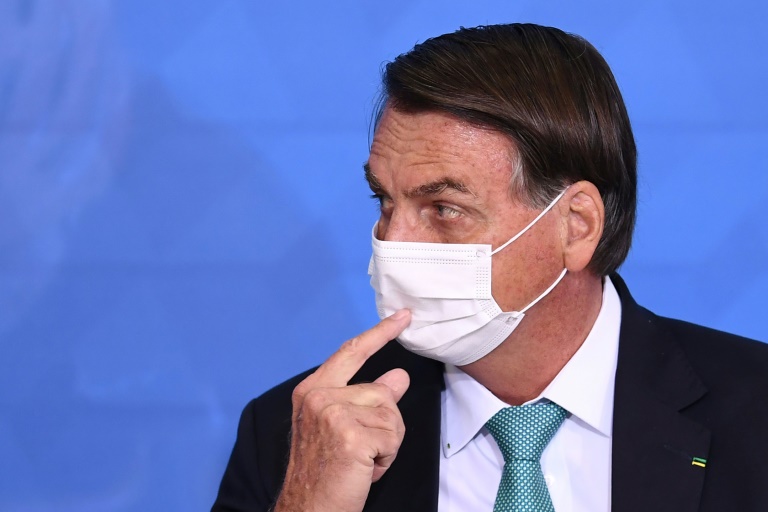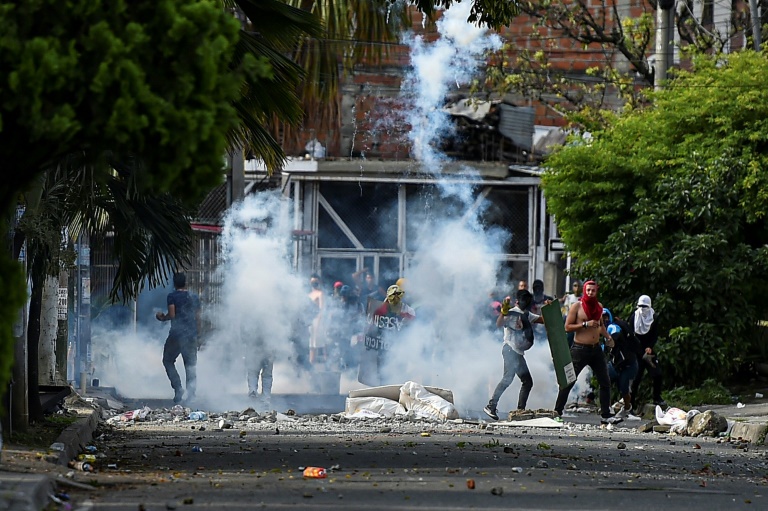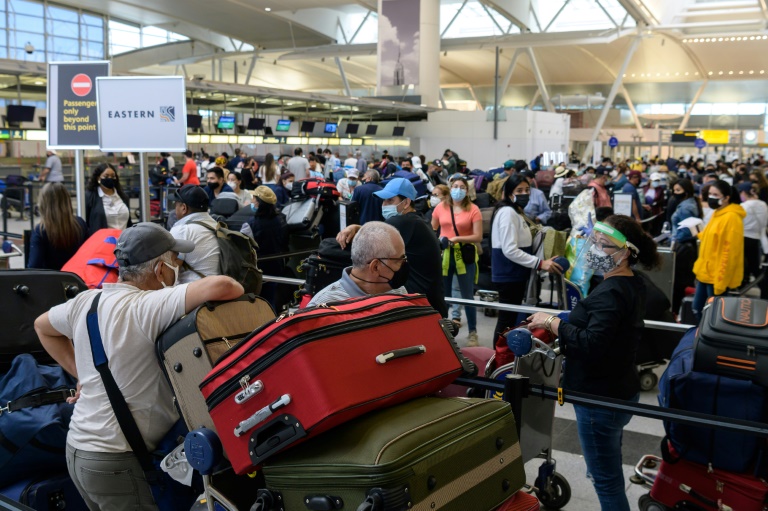Tokyo 2020's turbulent Olympic timeline
From a historic virus postponement and summer heat fears to unprecedented restrictions on fans, the path to staging the Tokyo Olympics has been far from smooth.
With one month until the opening ceremony on July 23, AFP chronicles Tokyo’s troubled journey to the Games.
– 2013: Tears and cheers –
News presenters shed tears and crowds erupt in delight as the International Olympic Committee names Tokyo host of the 2020 Games.
Thoughts turn to the victims of Japan’s devastating 2011 earthquake, tsunami and Fukushima nuclear disaster, with the Olympics seen as a chance to rebuild.
– 2015-16: Stadium and logo ditched –
Proposals for a new national stadium go back to the drawing board in July 2015 following public anger over the $2 billion price tag.
As the Games stumble from one problem to another, Kenjiro Sano’s original Olympic logo design has to be ditched over its resemblance to the emblem of a Belgian theatre. Sano denies plagiarism.
The following year a new “snake-eye” logo for the Games is unveiled.
– 2019: Payments probe, marathon switch –
French magistrates charge the head of Japan’s Olympic committee as they probe payments totalling $2.3 million made before and after Tokyo’s nomination.
Tsunekazu Takeda protests his innocence but later steps down from the role.
In October, the IOC shifts the Olympic marathon to northern Sapporo to avoid the capital’s sweltering summer heat — a surprise move that infuriates Tokyo officials.
– March 24, 2020: Historic postponement –
With the coronavirus spreading rapidly worldwide, Japan and the IOC make the historic decision to postpone the Olympics.
A new date is announced for the opening ceremony — July 23, 2021 — but the event will still be called Tokyo 2020.
Organisers later rule out the possibility of postponing the Games a second time.
– December 2020: Anti-virus rules –
Vowing that the rescheduled Olympics will go ahead, organisers outline plans for holding the event safely.
Athletes will facing regular testing and restrictions on mingling, while spectators are banned from cheering.
The IOC says it will try to ensure as many participants as possible are vaccinated, but jabs will not be obligatory.
– January 2021: Virus surges, support drops –
Public support for the Olympics plunges in Japan as a virus state of emergency is declared in Tokyo and other regions to halt a winter spike in infections.
But organisers and the IOC insist the Games will be held, with Prime Minister Yoshihide Suga saying they will be “proof of mankind’s victory over the virus”.
– February 2021: Sexism rows –
Tokyo 2020 chief Yoshiro Mori resigns after his claims that women talk too much in meetings spark a firestorm of criticism.
He is replaced by Olympic Minister Seiko Hashimoto, a seven-time Olympian who is one of just two women in Japan’s cabinet.
Just weeks into her tenure, she accepts the resignation of the creative director for the Games’ opening and closing ceremonies after a report reveals he suggested a plus-size female comedian could appear as an “Olympig”.
– March 2021: No overseas fans, torch relay begins –
In an Olympic first, overseas fans are barred from the Games to limit infection risks.
On March 25, the cherry blossom-shaped Olympic torch is lit in Fukushima, with no spectators allowed at the launch.
As the flame traverses the country’s 47 prefectures, several public sections of the relay are scrapped in areas where virus cases are spiking.
– June 2021: First athletes arrive –
In April, North Korea says it will not attend the Tokyo Games to protect its athletes from Covid-19, dashing Seoul’s hopes of using the Games to restart talks with its nuclear-armed neighbour.
Through spring and into summer, debate rages about whether the Olympics should be held as planned, as the pandemic continues to wreak havoc and new variants emerge.
But several test events are held successfully, and in a major step forward for the troubled event, on June 1, the first foreign athletes arrive in Japan — Australia’s softball team, who are attending a pre-Games training camp.
– June 2021: Domestic fan cap set –
Organisers opt to limit fan numbers to half venue capacity per event, capped at 10,000, soothing fears of a Games in front of empty stands. But they warn that events could move behind closed doors if infections spike in Japan.

